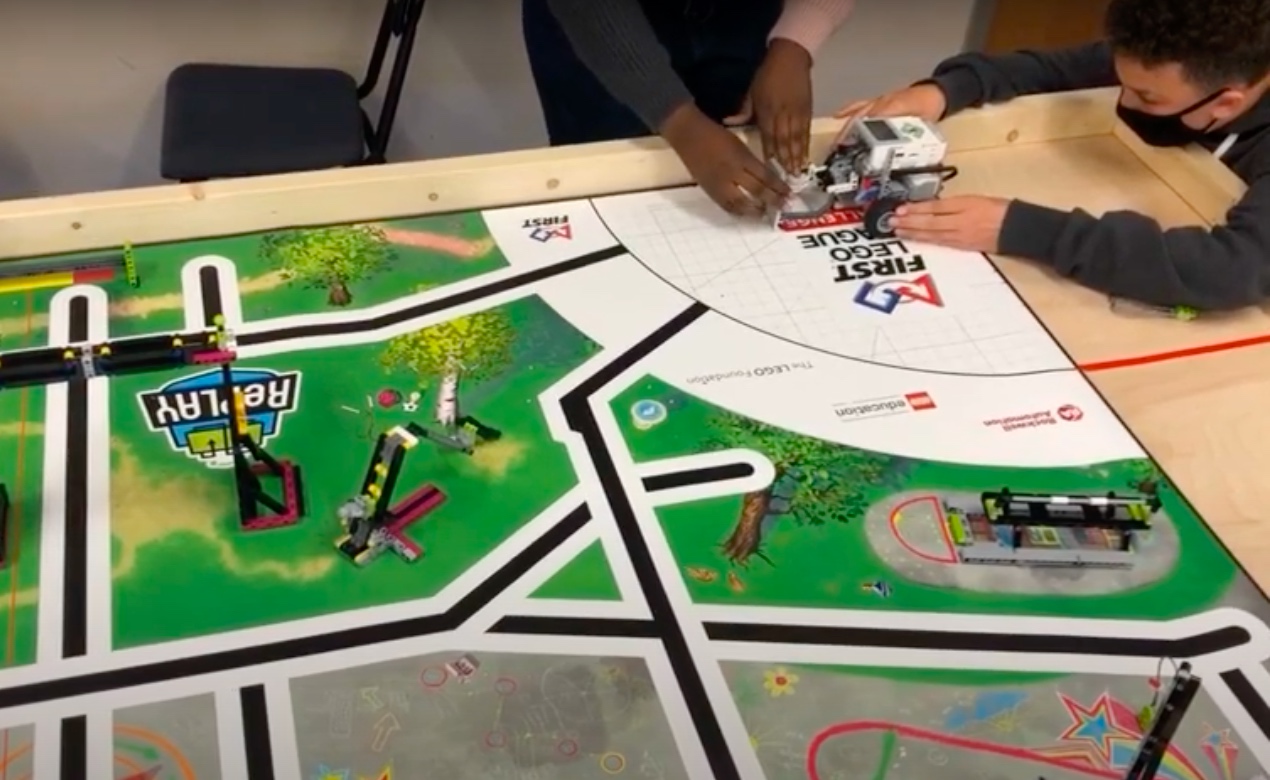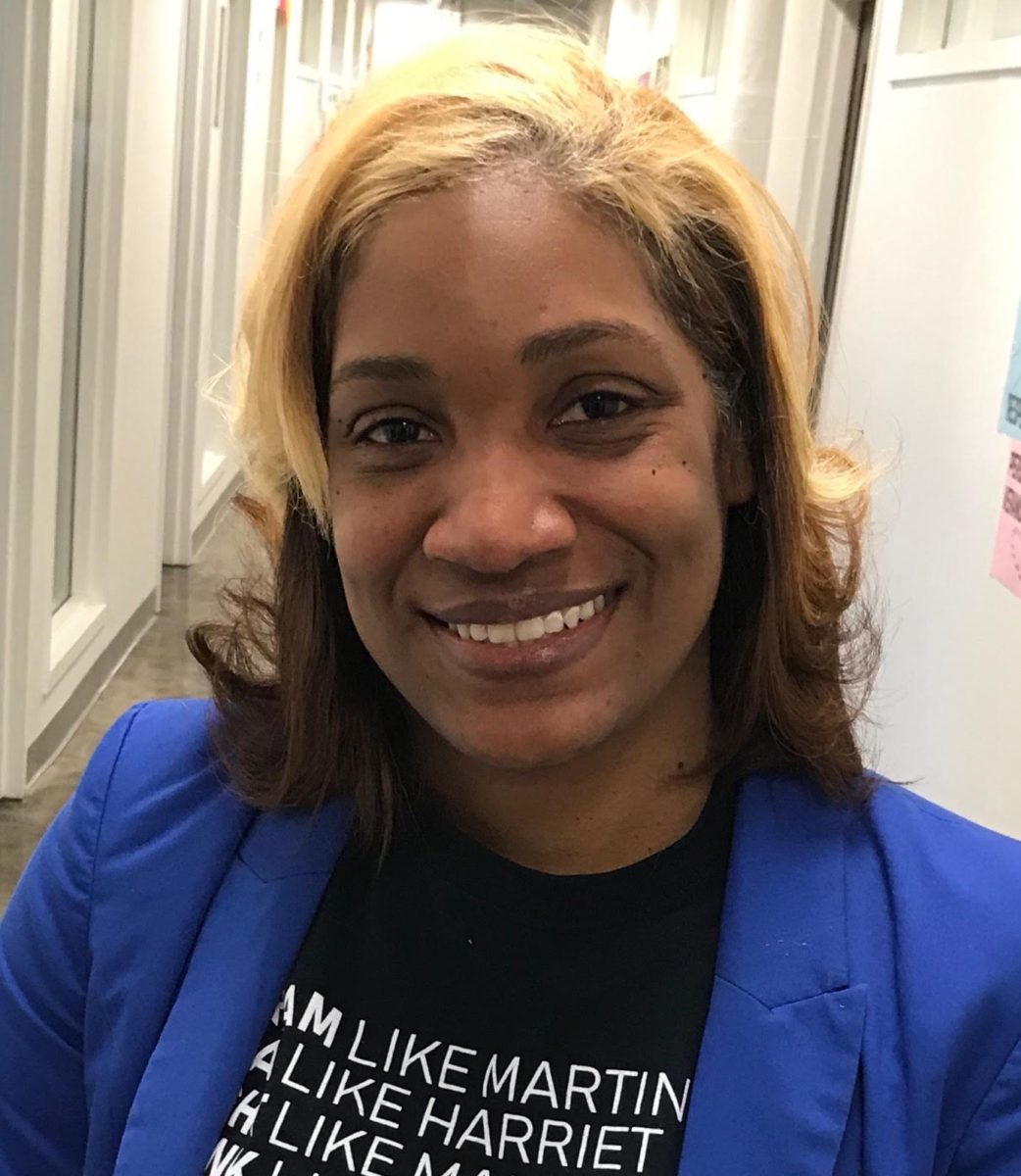They may not realize it at the time, but putting together a LEGO set can lead kids to professional opportunity.
“A lot of times there is a misconception that you have to be a certain type of person to be in STEM and robotics,” Philadelphia Robotics Coalition (PRC) Executive Director Robin Walker told Technical.ly just six weeks into her tenure. However, that simple childhood pastime was actually an entry point to the industry: “Most kids played with something that brought out their critical thinking skills, creativity and collaboration.”
The three-year-old nonprofit supports robotics education for students throughout the School District of Philadelphia in an effort to spread STEM knowledge to Black, brown and girl students who have traditionally been left out of the tech workforce — and yes, sometimes that involves LEGOs.
PRC makes grants to fund robotics teams and coaches, including participation in the international FIRST LEGO League Challenge for fourth through eighth graders and organizing workshops and competitions such as FIRST Tech Challenge Teams for high schoolers. The coalition also connects teams with mentors from likes of the Philadelphia chapter of the Naval Surface Warfare Center, a civilian engineering division of the U.S. Navy. By supporting teams in schools, community centers, local YMCA branches and recreation centers, Walker said, she and her colleagues hope to meet students where they are.
After the coalition spent a year conducting virtual programming, Walker is looking forward to students working on robotics projects in-person since the experiences rely heavily on skills that are that much harder to polish during virtual activities.
“We, being adults, assume that young people would take to virtual world,” she said. “But there are a lot of aspects they miss out on, like tangible skills that were missing. Many young people are visual and tactile learners and that was lacking last year. Those elements were missed out on in a lot of spaces.”
By understanding robotics and their applications, Walker believes students can understand how the technology applies to a certain industry or a problem the world is facing. The director herself has a professional background in youth development — she previously worked as learning exchange director for YouthBuild Philadelphia Charter School — though no direct STEM experience. She hopes that can resonate with students who may not have a strong foundation in math or science. She also wants students to learn more about “failing fast,” a strategy employed by many technologists and professionals across industries in delivering results.
In Pennsylvania, STEM job opportunities are expected to grow by 8% through 2027, according to a 2019 report by the Pennsylvania Department of Education and as recently reported by Kensington Voice. But the state may face challenges when finding qualified workers to fill those positions. In a 2017 report, 40% of Pennsylvania high schoolers displayed STEM college or career readiness. For Black students, the figure was even lower at 10%. According to the state’s report, research suggests that students of color, low-income students and girls are often unable to access the same high-quality computer science and STEM education as their wealthier, white and male peers.

An opportunity gap, and not a skills gap, is what Walker believes has kept many Philly public school students from exploring and understanding STEM careers. These students may lack in-school exposure to STEM altogether, or may have to deal with other circumstances such as taking care of a younger sibling after school hours that kept them from attending extracurricular programming.
With her youth development background, Walker believes that how STEM is presented to students can be a deciding factor in sustaining their interests. Robotics and the sciences have long held a stereotype as being something for nerds, but have more recently become part of mainstream culture. By showing students how a robot moves and focusing less on scientific jargon or minutiae, Walker sees a way of captivating young minds.
“I attempted to build a robot when I started working here during a training. It was very exciting and very cool,” she said. “I could see this thing I built moving [even though] I didn’t have scholarship-worthy science skills. You can bring a lot of different skills in and then you learn. If you like how the robot rolls down the hall, come at it from a different lens.”
Walker intentionally decided to work with public school students because she believes public schools are latent with talent and their students are often overlooked. By giving students project-based learning opportunities and exposing them to STEM professionals who look like them, the coalition looks to build bridges for Philly public school students into the economy of the future.
You can apply for funding to start a robotics team on PRC’s website.







